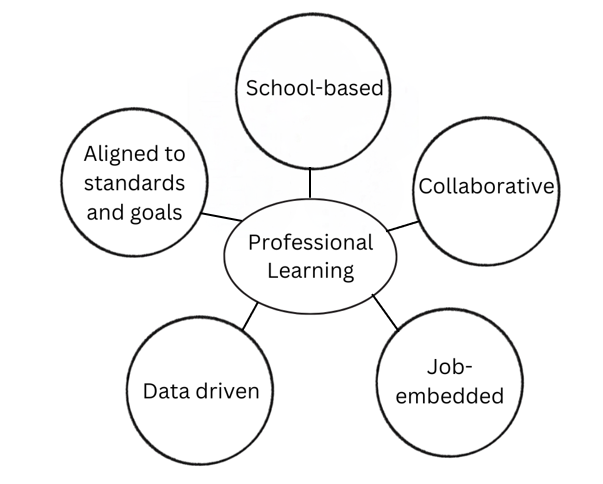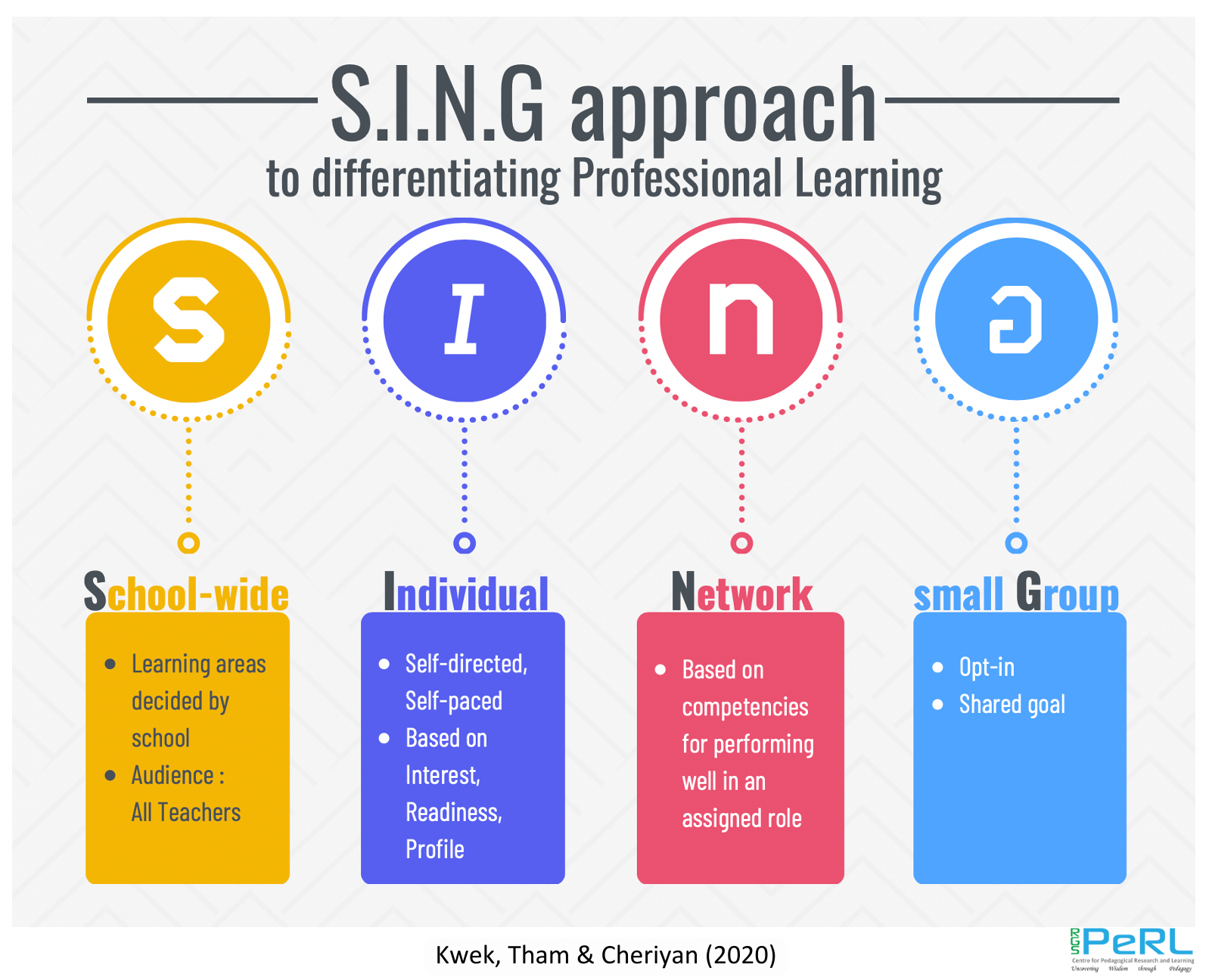Professional Development
Professional Development in RGS: Nurturing The Adept Teacher of The Highly Able Girl
The RGS Professional Development Plan-2 (PDP-2) aims to develop and retain staff with the necessary competencies and dispositions to cultivate professional discourse and viewpoints that engage, create and challenge learning. An ongoing review process ensures constant feedback, analysis and refinement of the quality of teaching.
Professional Learning of RGS Education Officers
Definition: Professional Development Plan and Professional Learning
Professional Development Plan refers to the overall, whole-school system of staff development.
Professional Learning refers to teachers’ ongoing learning as they create their own knowledge about their practice and use student outcomes to plan and reflect on their practices. Work is interlaced with learning within a collaborative culture.
Both Professional Development (PD) and Professional Learning are systematic and intentional.
Rationale for Professional Learning
Research shows that quality teaching enables quality learning. In line with this, Professional Learning focuses on providing the conditions for all to learn, including school management and teachers. The school gives time and space for collaboration on lesson design and data-driven instruction as well as mentoring and coaching. With the student at the center of this process, Professional Learning creates a culture of collective learning and hence, deepens the social capital.
Beliefs
The PD plan is based on a set of beliefs and values about teaching and learning as articulated in the following ways:
1 . RGS educators view student learning as a collective responsibility
2 . Sustained professional learning contributes to quality
teaching
3 . Teams engage in a continuous cycle of improvement because
they want to improve their practice
4 . Student learning needs define educators’ learning needs
These beliefs have largely endured in RGS over time.
Features of RGS' Professional Learning
Literature indicates that a well-developed Professional Learning Plan consists of the following principles:

1 . Aligned to curriculum standards and national goals : The goals and standards are explicitly stated so that faculty members organize their learning to achieve the larger purpose.
2 . Collaborative : Research shows that when teachers discuss their classroom strategies, assessment and students’ work together, they develop a sense of collective efficacy. As they discuss and learn from each other, they hone their competences and thereby, enhance student learning.
3 . School-based : Professional learning is facilitated by a school-based team of leaders, mentors and Heads. The professional conversations are therefore, contextual and are driven by a sense of collective responsibility towards student learning. Where necessary, external expertise is sought to enrich the knowledge and practice.
4 . Job-embedded : Research findings associate positive change in educator practice with professional learning activities that focus not only on curriculum content but the teaching and learning of that content (Blank & de las Alas, 2009).
Knowledge of teaching is learned in practice (Ball & Cohen, 1999). It is connected to practice and is iterative.
Teachers take note not only of what they teach but also, how they have done so. They examine students’ learning in terms of the desired outcomes and use the feedback to further hone their practice. As Smylie (2010) noted, “We will fail … to improve schooling for children until we acknowledge the importance of schools not only as places for teachers to work but also as places for teachers to learn” (p. 92).
5 . Data-driven : Pedagogical decisions are based on triangulated data on student performance. Professional learning is therefore, outcomes-focused. Assessment is valued for its data on the teaching–learning relationship.
Evaluation of Professional Learning
Evidence that directly correlates professional learning with student achievement is thin. Given the complexities of human motivations and classroom dynamics, this is understandable. Current research only suggests that a well-developed PD Plan influences teacher practice and student performance but a causal relationship is not established.
Moreover, professional learning includes outcomes that go beyond student learning. These include professional interaction amongst staff, mentoring of new teachers and practitioner inquiry. These activities contribute to staff morale, capacity- building and collegiality which should be valued for their intrinsic worth.
In fact, OECD quotes the Heisenberg’s Uncertainty Principle [1] to warn PD planners on the ‘corrupting and distorting’ effects of quantitative indicators for what is largely, a social process.
Thus, for now, the quality of RGS’ Professional learning is evaluated using evidence–backed standards for professional learning, focusing on the processes and outcomes of teacher learning rather than to establish a causal relationship between professional learning and student achievement. Meanwhile, through in-house research and scan of research elsewhere, this relationship will be attempted.
Acknowledging the multifacetedness of Teaching and Learning, multiple measures are accordingly used to evaluate professional learning. These include the following:
-
Classroom Observation Scale-Revised (adapted from College of William and Mary, USA)
-
Student performance data
-
Teacher and student surveys
-
Qualitative evidence: anecdotes; observations; interviews
The data contributes to training plans, in-house research and strategic directions.
The in-house SING approach facilitates a segmentised professional learning plan.

[1] Quoted in OECD report accessed from http://www.oecd.org/edu/school/48727127.pdf

